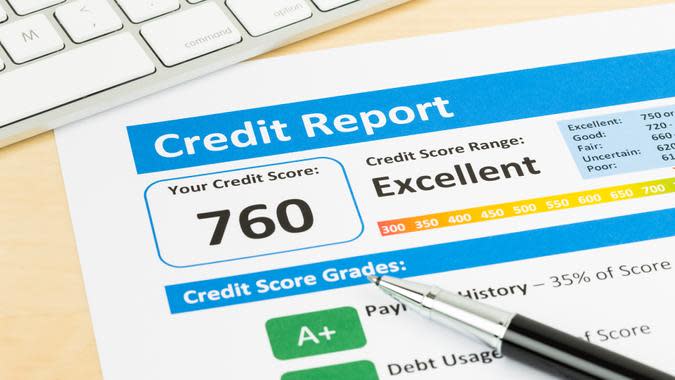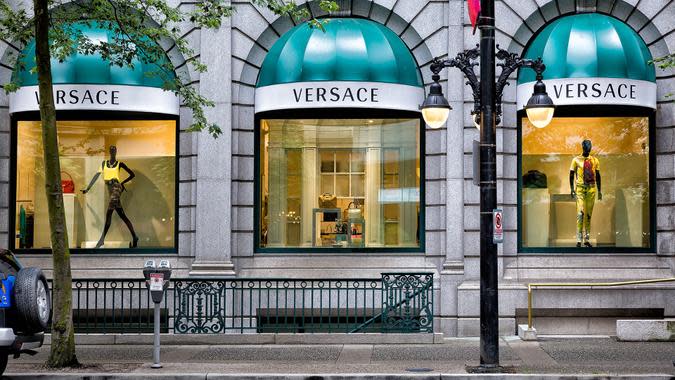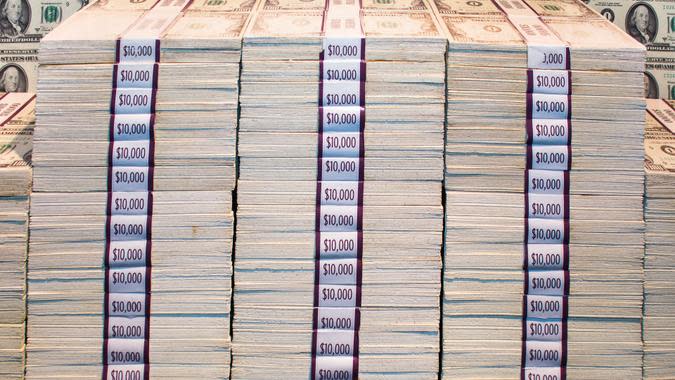11 Expenses Successful People Don’t Waste Time or Money On

People have struck it rich by launching social media startups, inspiring wildly successful crowdfunding campaigns and writing wizard-themed bestselling books. But most successful people have far more boring backstories of accumulating wealth through savvy spending and smart saving strategies.
I'm a Self-Made Millionaire: These Are the 6 Investments Everyone Should Make During an Economic Downturn
Read: How To Build Your Savings From Scratch
Aside from the occasional indulgence, most financially successful people keep a close eye on their budgets and bank balances. They rarely waste money on goods and services that don't offer much in return. Learn which items to cut from your budget, and get expert tips on how to manage your money better.

1. Lottery Tickets
If you truly want to strike it rich, don't play the lottery. This is a sure way to burn money fast -- and rich habits simply don't include a weekly stop at the convenience store lotto line. Your chance of winning the Powerball grand prize is about one in 292 million. Those odds are not in your favor. Take a look at the math: A Powerball ticket costs $2. That might not seem like much, but if you play twice a week for a year -- and buy two tickets each time -- you'll have flushed more than $400 down the drain. Don't waste your hard-earned money on chance when you can put it toward wealth-building goals, such as retirement or college tuition. Invest the same $416 each year, getting just a 5% return, and over 30 years you'll have $28,055.
How To Buy ChatGPT Stock: Your 2023 Guide to AI Investing
Advice: Suze Orman Cautions Against Investing Emergency Funds in Two Common Places -- Here's Why

2. Banking Fees
Like many businesses, banks charge fees for their services. For instance, many banks require monthly maintenance fees for certain accounts. They also typically charge around $35 per overdraft. That's not even taking into account monthly maintenance fees, ATM fees and other sundry charges.
Take Our Poll: Are You Concerned About the Safety of Your Money in Your Bank Accounts?

3. Interest on Credit Cards
A credit card can be similar to eating from a tub of ice cream: you might feel a little guilty for overindulging afterward, but it's just too convenient. Sure, it's easy to swipe the plastic -- but you won't catch wealthy people accruing high credit card interest. They know it's a waste of money. To avoid accruing interest, only buy what you know you can pay for when your statement comes. If you are carrying a balance, transfer or consolidate your debt to a credit card with a zero percent introductory APR. Just be sure to pay off your balance before the promotional period ends.

4. Inflated Interest Rates
Americans' average FICO score hit 716 in 2022, its highest mark since Fair Isaac Corporation, which created the credit risk scoring system, started tracking statistics, according to data collected by Experian. That's a money-saving milestone since a clean credit record gives conscientious consumers more than just bragging rights.
Credit scores play a leading role in determining your interest rate for auto loans, mortgages and more. Just by having a higher credit score, you can save hundreds or thousands of dollars in interest over the life of a loan. People with substandard scores, however, might not be able to land loans at all.
Financially successful people keep their credit reports pristine by paying bills on time, keeping debt levels low and fixing mistakes on their credit reports. And if you already have a decent credit history but carry a balance on some credit card accounts, consider calling card issuers to request a higher credit limit. A higher limit will reduce your credit utilization rate -- the percentage of available credit you are using -- and could boost your score. While you're on the phone, it can't hurt to ask for a rate reduction. The lower your interest rate, the faster you can blast balances.

5. Late Fees
Successful people don't get saddled with late fees that can chip away at their bank balances and credit scores. Paying late can even cost people who pay off their balances every month. Just about every other monthly bill carries its own procrastination penalty as well. Savvy spenders avoid late fees by automating everything. If you've ever asked yourself, "How can I get rich?" -- automating your payments so you don't get hit with high fees and penalty rates can help you hold on to more of your money.

6. Extended Warranties
Somewhere along the line -- say, if you bought a new 4K TV -- you were probably asked, "Would you like to purchase an extended warranty?" But according to Consumer Reports, a financially successful person has a simple answer to that question: "no."
Although people want the most value from purchased products, generally, extended warranties don't give you more bang for your buck. In fact, according to Consumer Reports, retailers keep 50% or more of what they charge for extended warranties. Extended warranties just aren't one of the things rich people buy. So, what do rich people do? They research -- and you should follow their lead. For instance, check your manufacturer's warranty before saying yes to an extended warranty. You might have more coverage than you initially thought. Also, compare the cost of potential repairs versus the extended warranty. You'd typically be better off putting aside the money you'd spend on a souped-up warranty to cover future repairs yourself, according to Consumer Reports. So the next time a salesperson tries to sell you on that extended warranty, shut the conversation down fast.
Why Is My Cash App Payment Pending? 5 Reasons and Solutions

7. Impulse Buys
Have you gone into a store intending to purchase one thing but come out with a cart full of stuff? Maybe it was buy one, get one free at the grocery store, so you snagged a few extra items. Or perhaps it was a flash sale on your favorite clothing website and you bought designer shoes. Whatever the case might be, this isn't a shopping practice for the wealthy. Successful people are planners, and impulse purchases tend not to mesh with this quality.

8. Low-Interest Savings Accounts
Do you like stashing cash in savings because it's secure and you can pull out money on a whim? Would you like to see more than pennies on your interest? If you answered "yes" to both, change your strategy to truly emulate a financial mogul. Regular savings accounts don't earn a lot of interest. You can find high-yield savings accounts by looking beyond traditional brick-and-mortar banks. Online banks, for example, frequently offer the highest return rates because they have no or lower overhead costs. If you're looking to boost your wealth by making wise decisions with money, explore your online savings account options.
Furthermore, automating works as a smart savings strategy. David Bach, the author of "The Automatic Millionaire," suggested diverting dollars directly to your high-interest savings account before you even see it. That way, you won't have the opportunity to second-guess or sabotage your savings plan.

9. High-End Brands
You might see a lot of designer labels on the red carpet, but many rich people don't choose designer labels for every purchase. Though they have the funds to splurge at luxury retailers, they understand that doesn't always mean they should. What do rich people buy? The answer can depend on the day. For example, former first lady Michelle Obama donned her share of designer duds. But she was also seen boarding Air Force One and making press appearances while wearing dresses from Target during her husband's presidential tenure. So, if you want to emulate the habits of rich people, stop and ask yourself if that $200 pair of designer jeans is really worth the investment -- or will $30 discount store denim do the trick? Always shop wisely, and keep your budget and financial goals in mind.

10. Bad Real Estate
Billionaire investor Warren Buffett still lives in the Omaha, Nebraska, house he bought for $31,500 in 1958. He shelled out significantly more for his vacation getaway in Laguna Beach, California, purchasing the 3,588-square-foot home for $150,000 in 1971. He put that property on the market for $11 million in 2017 and ultimately sold it the next year for $7.47 million -- well below the asking price, but still a hefty return on investment. Author and entrepreneur Tony Robbins advised millennials to look at property as an income engine rather than as a place to put down roots. The truth is few homeowners will be as lucky as Warren Buffett or hang on to homes for as long, and there's no guarantee a home's value will appreciate at all.
Zelle Scams on Facebook Marketplace: How To Recognize and Avoid Them

11. Extravagant Inheritances
Financially successful families are often in a position to give the younger generation a helping hand when it comes to expenses like tuition and housing. But, for the most part, supporting their kids for life is just not one of the things rich people do. Many millionaires -- and billionaires -- have publicly announced plans to leave a big bundle to charitable causes rather than keeping it all in the family. For example, Bill Gates has said he plans to donate the bulk of his billions to the Bill and Melinda Gates Foundation rather than leaving it to his three children. And Facebook founder Mark Zuckerberg and his wife Priscilla Chan, who have two daughters, have pledged to donate 99% of their Facebook shares to charitable causes during their lifetimes.
More From GOBankingRates
Laura Woods contributed to the reporting for this article.
This article originally appeared on GOBankingRates.com: 11 Expenses Successful People Don’t Waste Time or Money On

 Yahoo Finance
Yahoo Finance 